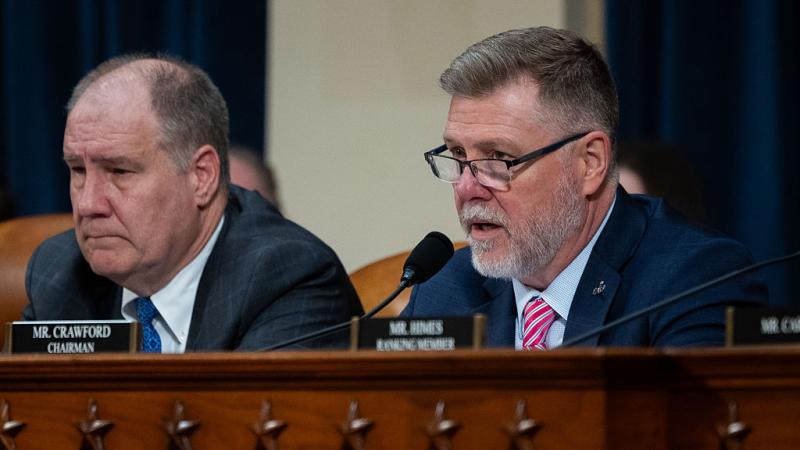Red states limit abortion, allow lawsuits as blue states expand, fund abortion
Democratic states seek to legally protect and fund abortions as Republican states limit abortions and allow residents to sue clinics.
As the Supreme Court reviews a Mississippi law banning abortion after 15 weeks and has allowed a Texas law banning abortion after six weeks to be enforced, other states across the country are reconsidering their abortion laws.
While the new Texas abortion law allows residents to sue abortion clinics, a proposal awaiting a vote in the Missouri state Legislature would take it to the next level, letting Missourians sue anyone who helps a Missouri resident get an abortion outside the state, according to POLITICO.
In 2019, a Planned Parenthood clinic across the river from St. Louis in Illinois opened up with the goal of serving Missouri residents, explained GOP state Rep. Mary Elizabeth Coleman, who is leading the drive for the new proposal.
"If you believe as I do that every person deserves dignity and respect and protection whether they're born or unborn, then of course you want to protect your citizens, no matter where they are," Coleman told POLITICO.
"If a Missouri resident is hurt, even in Illinois, by a product that they bought in Illinois, there is still jurisdiction for them to sue in a Missouri court because that's home for them," she said, explaining that her measure "is extending that same kind of thought to abortion jurisprudence."
"There's no clear precedent saying that states can't try to regulate out-of-state conduct if it has some effect in-state or if it [involves] one of their citizens," David Cohen, a professor of law at Drexel University's Kline School of Law, told POLITICO. "What these laws are doing is saying, 'We have a different understanding of how America works, and that understanding is that if you live in this state, we control you everywhere you are.'"
Missouri has only one clinic, in St. Louis, that still provides surgical abortions, according to The Kansas City Star. The state also has a ban on abortion after eight weeks, but it is not enforceable as a legal challenge to the law is making its way through federal court.
In Maryland, a bill passed by the state House earlier this month would amend the state constitution to protect abortion rights in the event that Roe v. Wade is overturned by the Supreme Court, the Associated Press reported.
However, as Maryland Catholic leaders noted in a commentary for the Baltimore Sun, "even if the United States Supreme Court were to strike down the current federal standard for abortions, the laws in states like Maryland would remain in effect."
Meanwhile, in Washington State, Democratic Gov. Jay Inslee signed into law on Thursday a bill that prevents legal action against those seeking an abortion and those who aid them, contrary to the Texas law, according to PBS News Hour.
The Washington law comes after the Legislature in neighboring Idaho passed a bill modeled after the Texas abortion law. The Idaho measure bans abortion after six weeks, letting family members sue any doctor who performs them. Idaho Gov. Brad Little (R) signed the bill into law on Wednesday, despite his "fear the novel civil enforcement mechanism will in short order be proven both unconstitutional and unwise," The New York Times reported.
Oregon's state Legislature has approved $15 million in its budget bill to be used for paying abortion fees, travel and lodging expenses, and to expand capacity of provider networks, NBC16 reported.
In New York, a state Senate amendment to the budget bill would require "every medical insurance policy offered in the state to include coverage for elective abortion," according to a New York State Right to Life Committee press release.
While there is a narrow exemption for "religious employers," many religiously affiliated charitable organizations aren't included, nor are pro-life pregnancy care centers.
The California state Senate is considering a bill that would create a public-private fund to make grants to nonprofits and research institutions to assist low-income women to get abortions.
On Tuesday, California Gov. Gavin Newsom (D) signed a bill into law that eliminates the additional fees of co-pays and deductibles for abortions, ABC News reported.
In Florida, meanwhile, Republican Gov. Ron DeSantis is expected to sign into law a bill passed earlier this month banning abortion after 15 weeks of pregnancy.
In Colorado, the state Senate is reviewing a bill that protects a "fundamental right" to have an abortion, continue a pregnancy, use or refuse contraception, Colorado Politics reported. However, a "fertilized egg, embryo, or fetus does not have independent or derivative rights under the laws of the state."
The Oklahoma House passed a bill on Tuesday that would ban all medically unnecessary abortions in the state, using private civil lawsuits as its enforcement mechanism, similar to the Texas law.















